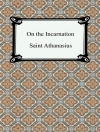Passover and Easter constitute for Jews and Christians respectively the most important festivals of the year. Although sharing a common root, the feasts have developed in quite distinct ways in the two traditions, in part independently of one another and in part in reaction against the other. Following the pattern set in earlier volumes in this series, these two volumes bring together a group of distinguished Jewish and Christian scholars to explore the history of the two celebrations, paying particular attention to similarities and connections between them as well as to differences and contrasts. They not only present a convenient summary of current historical thought but also open up new perspectives on the evolution of these annual observances.
Volume 5 in the series focuses especially on the origins and early development of the feasts and on the way that established practices have changed in recent years. Volume 6, also in the series, focuses on the contexts in which they occur—the periods of preparation for the feasts in the respective calendars and their connection to Shavuot/Pentecost—as well as to their traditional expression in art and music. At the same time, the essays raise some fundamental questions about the future. Have modern human beings so lost the sense of sacred time in their lives, for instance, that these great feasts can never again be what they once were for former generations of believers? And what about recent attempts by some Christians to enter into their heritage by celebrating a Jewish Seder as part of their annual Holy Week and Easter services?
Specialists and general readers alike will find much to interest and challenge them within these two additions to what has become a highly regarded series in the world of liturgical scholarship.
Mengenai Pengarang
Lawrence A. Hoffman is Barbara and Stephen Friedman Professor of Liturgy, Worship, and Ritual and director of the Synagogue 2000 Initiative for synagogue spirituality, Hebrew Union College-Jewish Institute of Religion, New York.







![perlindungan daripada Brian Schrag & Julisa Rowe: Community Arts for God's Purposes [Chinese] 貼近神心意的社群藝術 perlindungan daripada Brian Schrag & Julisa Rowe: Community Arts for God's Purposes [Chinese] 貼近神心意的社群藝術](https://static.worldofdigitals.com/thumb_webp/740/9781645083740.webp)




